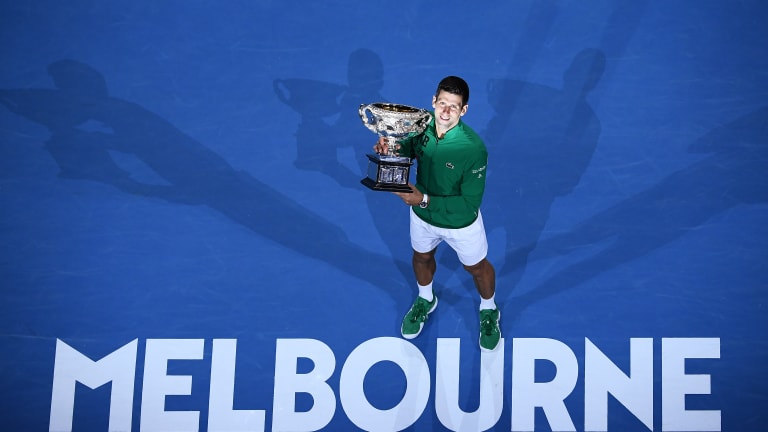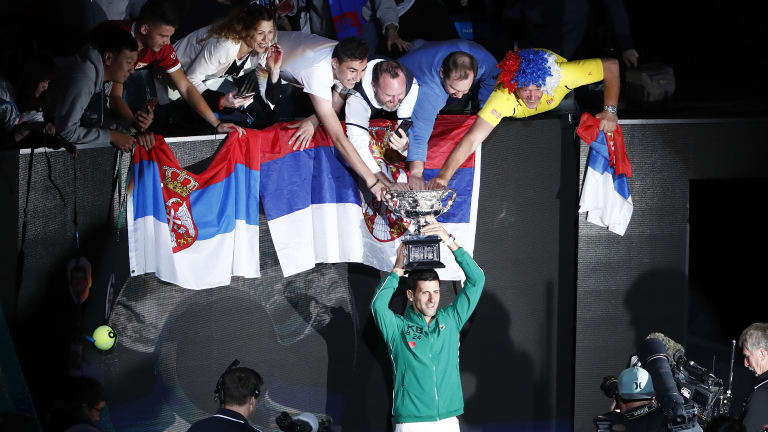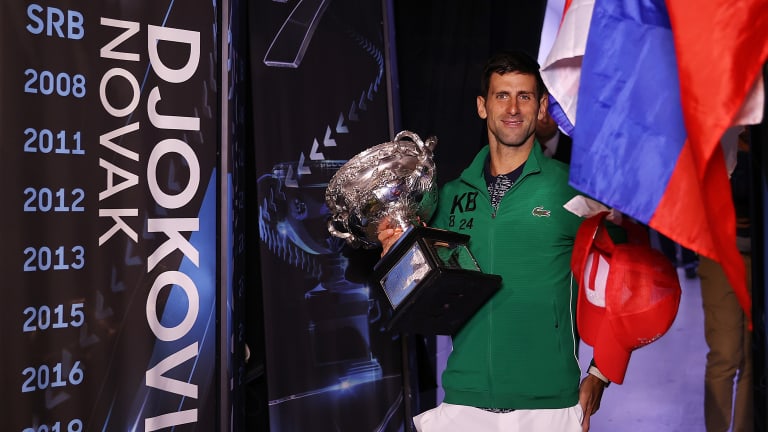Australian Open
From "turbulent" to triumphant in Melbourne: Djokovic rises once again
By Feb 02, 2020Australian Open
Roger Federer to headline “Battle of the World No.1s” at Australian Open’s inaugural Opening Ceremony
By Dec 11, 2025Australian Open
Australia at Last: Reflections on a first trip to the AO
By Jan 29, 2025Australian Open
Alexander Zverev must elevate his game when it most counts—and keep it there
By Jan 27, 2025Australian Open
Jannik Sinner draws Novak Djokovic comparisons from Alexander Zverev after Australian Open final
By Jan 26, 2025Australian Open
Alexander Zverev left to say "I'm just not good enough" as Jannik Sinner retains Australian Open title
By Jan 26, 2025Australian Open
Jannik Sinner is now 3-0 in Grand Slam finals after winning second Australian Open title
By Jan 26, 2025Australian Open
Taylor Townsend and Katerina Siniakova win second women's doubles major together at the Australian Open
By Jan 26, 2025Australian Open
Madison Keys wins her first Grand Slam title at Australian Open by caring a little bit less
By Jan 25, 2025Australian Open
Henry Patten, Harri Heliovaara shrug off contentious first set to win Australian Open doubles title
By Jan 25, 2025From "turbulent" to triumphant in Melbourne: Djokovic rises once again
You wonder whether, as much as the Slam chase inspires Djokovic, Nadal, Federer, it can also become a burden as they approach another title.
Published Feb 02, 2020
Advertising

From "turbulent" to triumphant in Melbourne: Djokovic rises once again
© Getty Images
Advertising

From "turbulent" to triumphant in Melbourne: Djokovic rises once again
© Getty Images
Advertising

From "turbulent" to triumphant in Melbourne: Djokovic rises once again
© Getty Images